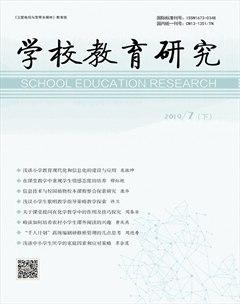Literature Review: How can we improve student motivationfor English language learning?
孟甜
There have been many ways to define motivation in second language acquisition (SLA). Motivational theories from psychology and sociology will be introduced based on the existing literatures in the following content.
Psychologists argue that motivation in SLA should be defined from the angle of psychological aspect, leading to two types: intrinsic motivation and extinct motivation. Intrinsic motivation could be defined as learning English for its own sake (Reiss, 2012) based on a persons interests and innate needs for self-determination (Lucas, Pulido, Miraflores, Ignacio, Tacay & Lao, 2010) that could motivate him or her to actively engage in an activity (Levesque, 2014). In the contrast, extrinsic motivation could be defined as the needs to achieve an instrumental goal (Reiss, 2012) based on the external motivational factors, including gaining money or better grades (Levesque, 2014).
Later, according to Gardner and Lambert, a new term named “integrative motivation” appears. It refers to learning English because of interests or desire to communicate with people whose mother language is English or to join in an English-speaking community (Ahmadi, 2011). It is believed that Gardners theory about motivation as a social-education model emphasis on the integrative motivation (Ahmadi, 2011), which indicates that the person with high integrative motivation would be more motivated, contributing to more persistent and intense learning (Isheh & Ghanea, 2011).
In the sociological-oriented approaches, researchers, on the other hand, focus on sociocultural mediated agency (Deters, Gao, Vitanova & Miller, 2014). It is viewed as a persons ability to act or behave through tools or others guidance (Yshima, 2012; Merer, 2011). From the critical view, learner agency is viewed as a necessary construct in L2 learning, and identity in this sense has viewed learners as having the ability to make choices and position themselves in response to social restriction (Miller, 2010). Agency, in this approach, is viewed as the ability to control and get rid of ones passive learning situation, and agency, thus, could also be regarded as the capacity to critically analyze the situation and to oppose the forces, the hinders in this situation. In light of this, in critical-oriented approaches, learners could be guided to think critically and find out the ideological substitutions so as to favor their needs (Yashima, 2012).
In conclusion, class teachers should view language leaners as ‘people first rather than the abstract learners. Thus, these theories of motivation could be the directions and guidance for class teachers to enhance their target students motivation in their daily class.

